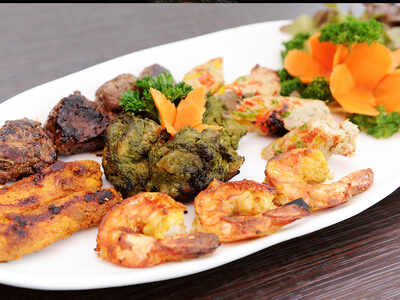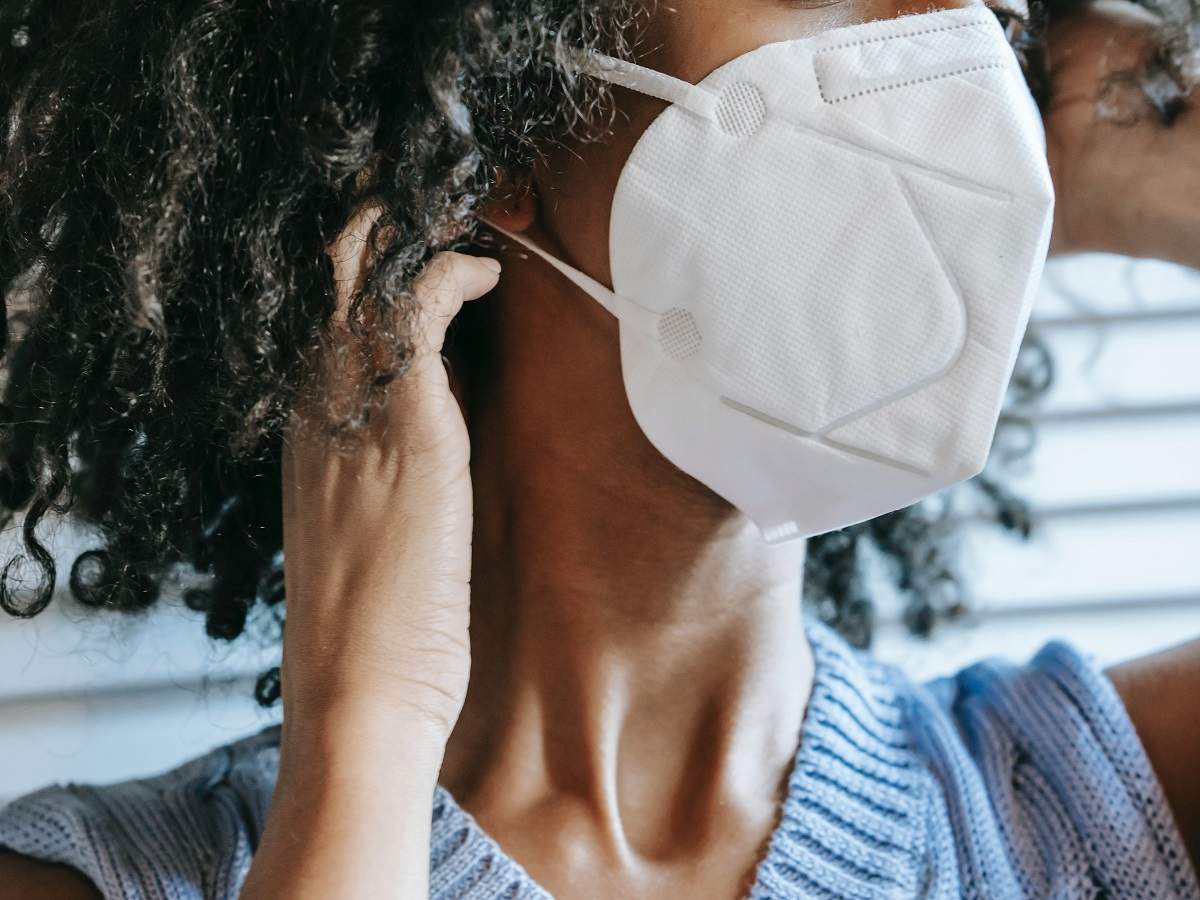
BENGALURU: If you have been contemplating to ditch meat and go vegetarian, here is a report that might inspire you to do so. According to the report - ‘The Future of Earth, 2020’- your consumption pattern is directly proportional to the climate change crisis and if animal-sourced food were to be completely removed from human diets, we could be successful in avoiding 8 gigatons (Gt) of greenhouse gas emissions every year, by 2050.
That means enormous cuts in greenhouse gases and in turn, lesser global warming and finally, considerable fixing of the climate change that has led to hotter summers every year, floods, rise in sea-levels and several related disasters.
The report, by Future Earth, was launched at the South Asia Future Earth Regional Office, Divecha Centre for Climate Change at the Indian Institute of Science on Thursday.
It discusses climate issues and solutions to save the planet.
Future Earth is a 10-year-old international research initiative that aims at building knowledge about the environmental and human aspects of Global change and to find solutions for sustainable development.
Speaking about food and agriculture in the report, Dr Rohini Mattoo of Divecha Centre for Climate Change (DCCC) said that the land needed to produce 1 kilo of meat is way more than producing the same quantity of fruits, potatoes and vegetables. “Reducing meat consumption could have huge ecosystem implication like reducing deforestation to make way for cattle ranching,” she explained.
It also cites the Intergovernmental Panel on Climate Change’s (IPCC) land-use report that emphasized that reducing meat and animal-sourced food consumption around the world could reduce greenhouse gas emissions and free-up land for growing fruit and vegetables or for other uses like ecosystem restoration. It also shows that 58 percent of all current greenhouse gas emissions from the food system come from animal-sourced foods, of which 85 percent is from Beef and lamb.
Though the Future Earth report says that some nutrients like B12 are not available through plant sources and must be consumed through animal products, excessive animal-sourced food can also contribute to cardiovascular disease and some types of cancer.
Going meat-free will not only help restore balance on land but also water. A spike in fish consumption since the 1960s, which is being calculated to be 3 percent more than meat consumption from land-based animals, has led to overfishing and in turn, the nutrient-predator balance in oceans.
Overfishing has increased from 10 percent in 1975 to over 30 percent in 2015. In addition, climate change and warming oceans are also pushing the fish away from their traditional fishing grounds. In this case, an organisation like the Marine Stewardship Council are trying to make fishing more sustainable by smart aquaculture – farming shellfish with finfish to balance nutrients, environmental benefits and economic support.
There is also the problem of greenhouse emissions due to food wastage that has been accounted to be equal to 3.3. Gt of Carbon-dioxide and 8-10% of 2018 global emissions.
The solutions for these issues lie in individual food choices, innovations and shift in policies.
For instance, UN Environment and the Food and Agriculture Organization (FAO) launched a campaign called ‘Think Eat Save’, which provides toolkits and infographics to help change behaviours from the institutional to the individual level. In China, the government-endorsed “Operation Empty Plate” aims to restrict things such as lavish banquets and over-ordering in restaurants.
Another option could be replacing conventional meat with insects. According to the report, it is an innovative way to increase protein sources that are more sustainable than cattle. Although insects are yet to hit supermarket shelves in any dramatic way outside Asia, the insect protein market could be worth US $1 billion by 2025.
Eighteen other meat alternatives include crops like soya or lab-grown tissues (although debate continues about whether lab-grown meat is more sustainable), according to the report.
That means enormous cuts in greenhouse gases and in turn, lesser global warming and finally, considerable fixing of the climate change that has led to hotter summers every year, floods, rise in sea-levels and several related disasters.
The report, by Future Earth, was launched at the South Asia Future Earth Regional Office, Divecha Centre for Climate Change at the Indian Institute of Science on Thursday.
It discusses climate issues and solutions to save the planet.
Future Earth is a 10-year-old international research initiative that aims at building knowledge about the environmental and human aspects of Global change and to find solutions for sustainable development.
Speaking about food and agriculture in the report, Dr Rohini Mattoo of Divecha Centre for Climate Change (DCCC) said that the land needed to produce 1 kilo of meat is way more than producing the same quantity of fruits, potatoes and vegetables. “Reducing meat consumption could have huge ecosystem implication like reducing deforestation to make way for cattle ranching,” she explained.
It also cites the Intergovernmental Panel on Climate Change’s (IPCC) land-use report that emphasized that reducing meat and animal-sourced food consumption around the world could reduce greenhouse gas emissions and free-up land for growing fruit and vegetables or for other uses like ecosystem restoration. It also shows that 58 percent of all current greenhouse gas emissions from the food system come from animal-sourced foods, of which 85 percent is from Beef and lamb.
Though the Future Earth report says that some nutrients like B12 are not available through plant sources and must be consumed through animal products, excessive animal-sourced food can also contribute to cardiovascular disease and some types of cancer.
Going meat-free will not only help restore balance on land but also water. A spike in fish consumption since the 1960s, which is being calculated to be 3 percent more than meat consumption from land-based animals, has led to overfishing and in turn, the nutrient-predator balance in oceans.
Overfishing has increased from 10 percent in 1975 to over 30 percent in 2015. In addition, climate change and warming oceans are also pushing the fish away from their traditional fishing grounds. In this case, an organisation like the Marine Stewardship Council are trying to make fishing more sustainable by smart aquaculture – farming shellfish with finfish to balance nutrients, environmental benefits and economic support.
There is also the problem of greenhouse emissions due to food wastage that has been accounted to be equal to 3.3. Gt of Carbon-dioxide and 8-10% of 2018 global emissions.
The solutions for these issues lie in individual food choices, innovations and shift in policies.
For instance, UN Environment and the Food and Agriculture Organization (FAO) launched a campaign called ‘Think Eat Save’, which provides toolkits and infographics to help change behaviours from the institutional to the individual level. In China, the government-endorsed “Operation Empty Plate” aims to restrict things such as lavish banquets and over-ordering in restaurants.
Another option could be replacing conventional meat with insects. According to the report, it is an innovative way to increase protein sources that are more sustainable than cattle. Although insects are yet to hit supermarket shelves in any dramatic way outside Asia, the insect protein market could be worth US $1 billion by 2025.
Eighteen other meat alternatives include crops like soya or lab-grown tissues (although debate continues about whether lab-grown meat is more sustainable), according to the report.
Get the app









